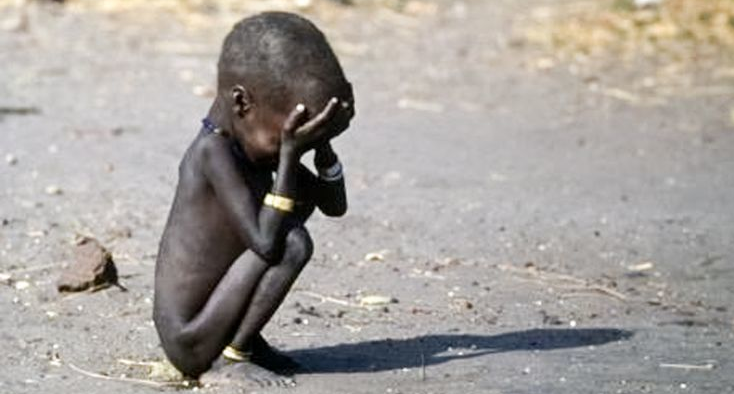
AFRICA NEEDS GOOD PRICE

BLOOMBERG - Sub-Saharan Africa faces a potential debt crunch unless commodity prices improve and boost the pace of economic growth.
The region's median government debt level will probably exceed 50 percent of gross domestic product this year from 34 percent in 2013, while the cost of servicing the liabilities will average almost 10 percent compared with half that four years ago, the International Monetary Fund said. There are no investment-grade dollar-debt issuers in sub-Saharan Africa after Moody's Investors Service and Fitch Ratings Ltd. cut Namibia to junk this year.
Commodity returns have dropped in six of the past seven years and expectations for slower growth in China, the biggest consumer, don't bode well for African nations that depend on mining, crops and oil for the bulk of their income. The region's growth may average 2.6 percent this year, almost double 2016's level but barely above population expansion, with delays in making policy changes risking this, the IMF said in October.
"Rising debt levels present a major risk to progress in sub-Saharan Africa, especially if there is another major shock in the global commodity market and if African markets are still in a recovery stage in the economic cycle," Gaimin Nonyane, London-based economic-research head at Ecobank Transnational Inc., said by email.
More Planned
Nigerian debt-sale plans will more than double its outstanding U.S.-currency bonds to about $9 billion. That will add to issuances by South Africa, Ghana, Senegal, Ivory Coast and Gabon.
Policy uncertainty in South Africa and Nigeria, the region's biggest economies, are restraining growth, with the IMF reducing their 2017 expansion forecasts to below 1 percent for the two nations.
In Kenya, the central bank said the nation can't continue its current debt build-up path if it's to remain sustainable. Authorities are also negotiating with the IMF to rollover a standby facility of $1.5 billion.
The number of sub-Saharan African countries in or at risk of debt distress almost doubled to 12 over the past four years, while Mozambique -- which defaulted this year -- is among those engaging creditors to restructure debt. Gabon, Ghana and Zambia are most susceptible to the risk of financing stress given large Eurobond maturities in the next decade, according to Moody's, which said sub-Saharan Africa sovereign downgrades outnumbered upgrades 20 to two since 2015.
"We don't envisage a debt crisis, but it's clearly a risk for a handful of countries," William Jackson, a London-based economist at Capital Economics, said by phone.
With no long track record of repaying international bonds, it will be a test for nations like Ghana, scheduled to make a principal payment of $2.75 billion through 2026, Moody's said in a report last month. Gabon owes $2.2 billion by 2025, and Zambia $3 billion from 2022 to 2027.
"If commodity prices fall, or capital inflows to emerging markets are low, then these countries will struggle to roll over these debts," Jackson said. "They may then need to pay higher interest rates or suffer from weaker currencies."
-----
Earlier:

2017, September, 25, 13:10:00
RENEWABLE ENERGY UPChina accounts for the lion’s share of the upsurge. But Middle East and north African countries are scheduled to have installed 14GW in solar plants by the end of 2018 — a seven-fold increase from 2015. Central and South America are also expected to reach 14GW, nearly five times more than in 2015, while India is set to hit 28GW, a jump of nearly six times.
|

2017, September, 15, 08:50:00
NIGERIA NEEDS TIMEEmmanuel Kachikwu, Nigeria’s minister of state for petroleum resources, told the Financial Times that the west African nation’s energy sector was still suffering from years of violent disruptions and needed more “recovery time” before joining a supply deal agreed last year between some of the world’s biggest oil producers.
|

2017, April, 12, 17:30:00
WBG - AFRICA'S ECOMOMIC DIFFICULTIESNigeria, South Africa, and Angola, the continent’s largest economies, are seeing a rebound from the sharp slowdown in 2016, but the recovery has been slow due to insufficient adjustment to low commodity prices and policy uncertainty. Furthermore, several oil exporters in the Central African Economic and Monetary Community (CEMAC) are facing economic difficulties.
|

2017, March, 24, 19:05:00
WBG: SUSTAINABLE AFRICAThe scaled-up IDA financing will build on a portfolio of 448 ongoing projects in Africa totaling about $50 billion. Of this, a $1.6 billion financing package is being developed to tackle the impending threat of famine in parts of Sub-Saharan Africa and other regions.
|

2017, March, 22, 18:40:00
STRENGTHENING IMF - 2I strongly welcome the proposed compacts between African and G20 countries to build capacity and unlock investment flows. All five countries in the first wave have Fund-supported arrangements. We will work closely with the authorities to strengthen their macroeconomic frameworks and will step up the provision of technical assistance.
|

2015, November, 20, 19:50:00
AFRICA IS CLOSED“Capital markets are effectively closed to the oil and gas industry” in Africa, Tony Hayward, former head of BP Plc and now chairman of Genel Energy Plc, said at a conference in Cape Town last month. “A decade of exploration, with billions of dollars invested and only limited commercial success.”
|

2014, November, 13, 21:20:00
NEW AFRICA PRIORITIESAfrica oil industry refocuses priorities as price falls and setbacks bedevil groups |




